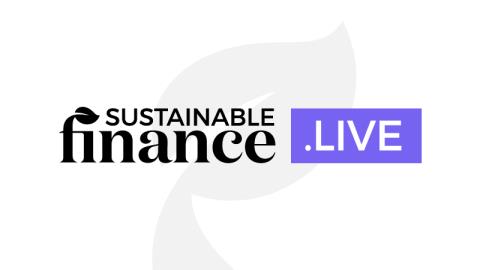Kicking off Sustainable Finance Live 2023 at Events@no6 in London, Richard Peers, founder of ResponsibleRisk, emphasized this year’s goal: uniting individuals who share a passion for driving sustainability in their work.
He outlined the primary theme of the event: financing sustainable cities and identifying solutions through panel sessions, workshops, and a hackathon. The discussions during the panels will concentrate on nature, climate, energy, the just transition, and various transformative factors such as data, AI, risk management, and financial instruments. Peers noted that promising ideas emerging from the conference will be presented to accelerators and have the potential to receive venture capital funding to advance sustainability initiatives.
Peers introduced the concept of “doughnut economics” as a framework for understanding the strategies and resources available for implementing actionable ideas. He explained that this model highlights the need to respect environmental limits while addressing social foundations, ultimately defining a safe operating space for humanity within urban contexts. Sustainable city development must involve collaboration between public and private finance and ensure transparency in how community funds are utilized, transcending political cycles.
In the inaugural keynote, Mitch Cooke, director of sustainability, ESG, and sustainable finance at Greengage Environmental, discussed how cities are tackling sustainability and regulatory challenges with available resources and innovations. He described the intersection of nature, climate, energy, and society as “the sweet-spot,” emphasizing how sustainable initiatives are constructed and how cities can meet green targets effectively.
Cooke presented various projects Greengage is spearheading in London aimed at creating a more sustainable urban environment. One notable example is the Elephant Park development in Elephant and Castle, which aims for net-zero operations and features green spaces that enhance biodiversity, along with a low-carbon power plant serving over 3,000 homes and local businesses. This regeneration effort has also generated thousands of jobs and increased public spaces for the community.
“We used Elephant Park as a living lab,” Cooke noted, explaining that the team engaged with local residents and broader sustainability networks to learn and establish a vision for future developments. They prioritized urban greening and designed spaces that facilitate healthy community interactions while addressing socio-economic factors.
Cooke also highlighted another project near the Excel Centre, which will provide affordable housing, workplaces, and cultural amenities, all powered by a zero-carbon heating network. The project’s aim is to foster green spaces that promote social connections, counteracting the mental and physical health impacts of loneliness, particularly among older individuals and those living alone.
In conclusion, Cooke asserted that cities can tackle sustainability and climate challenges through strategic placemaking. This involves collaborative approaches that recognize community needs and deliver multifaceted benefits for nature, climate, and energy. He stressed the essential role of finance—both traditional and innovative funding mechanisms—in unlocking these challenges, paving the way for effective public-private partnerships.
